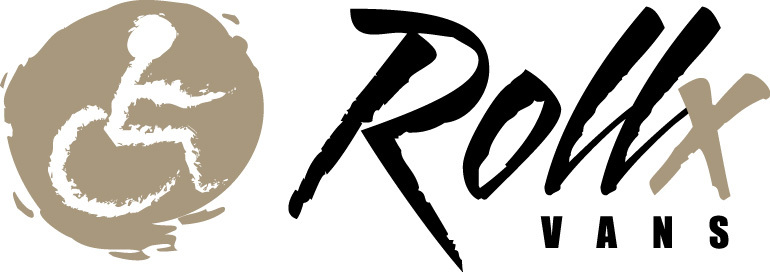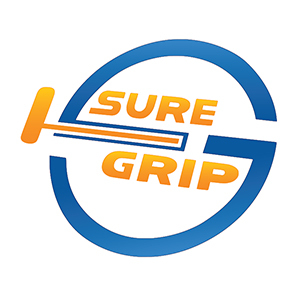
ADED eLearning
Midwest Chapter Meeting May 3-4,2024
- Registration Closed
ADED Midwest Chapter Meeting Agenda
May 3, 2024 1:00pm-5:00pm CDT & May 4, 2024 8:00am-12:15pm CDT | Live, in-person | $50 Members $100 Non-members| 6 ADED Contact hours | Registration closes April 26, 2024 5 PM CDT - Registration is for the full event, both days and a single day rate is not offered.
Location: Governor's State University
1 University Parkway, University Park, Illinois 60484
Lecture
Hall F1622
The campus map can be found here: https://www.govst.edu/uploaded...
Additional directions can be found here: https://www.govst.edu/Contact/...
Hotels nearby: Holiday Inn Matteson, Illinois
500 Holiday Plaza Dr, Matteson, IL 60443•(708) 747-3500
https://www.ihg.com/holidayinn...
Hampton Inn and Suites Matteson, Illinois
20920 Matteson Ave, Matteson, IL 60443
https://www.hilton.com/en/book...
Friday, May 3, 2024: 1:00 PM – 5:00 PM
1:00-1:45- Greeting and Chapter Meeting
2:00-3:30: Rehabilitative Driver Training Methods for Novice Drivers | Kate Lopez, OTR/L, MHS, LDI, CDRS
3:30-5:00: It’s What You Don’t See That’ll Get Ya | Kerry Jones
5:00−6:30pm: Reception Hosted by the Department of Occupational Therapy in the G Atrium.
Saturday, May 4, 2024: 8:00 AM– 12:15 PM
8:00 -9:00: Breakfast
9:00-10:30: Driving with Low Vision | Emily Haffner, CScD, MOT, OTR/L, CDRS
10:45-12:15: Driving Evaluation for Clients with Childhood-Onset Neurological Disorders: An updated review of evidence-based practice | Dr. Matthew Miller
Session 1: “Rehabilitative Driver Training Methods for Novice Drivers” | Speaker: Kate Lopez, OTR/L, MHS, LDI, CDRS
Driving is one of the most complex activities that can be developed. An individual experiencing an intellectual and/or developmental disability or learning disability can have difficulty with a variety of performance skills that may not be visible but could impact their successful participation in driving. This course will help attendees learn to identify key characteristics of those hidden disabilities and how they could relate to driving performance. This course will then help attendees list potential driving and educational interventions and methods for in-clinic assessment and on-the-road training for novice drivers with hidden disabilities.
Objectives:
- Identify key characteristics of Intellectual Disabilities/Developmental Disabilities (ID/DD) or learning disabilities and how they could impact learning and participation.
- Relate how those key characteristics could impact driving performance.
- List potential interventions and methods for in-clinic assessments on-the-road training for novice drivers with ID/DD or learning disabilities.
Session 2: "What You Don't See is What You Get" | Speaker: Kerry Jones
The importance of Post- Modification Vehicle Inspections (PMVI) and understanding the important role NMEDA provides for this process.
Learning Objectives:
- Participants will learn the process, stages and responsibilities associated with Post-Modification Vehicle Inspections (PMVI)
- Participants will understand the role NMEDA guidelines play in completing a PMVI.
- Participants will be able to identify at least six of the most common issues encountered during the performance of a PMVI.
Session 3: Driving with Low Vision | Speaker: Emily Haffner, CScD, MOT, OTR/L, CDRS
Driving rehab providers all encounter individuals with vision impairments. Changes in vision can have significant impacts on driving performance. This course will help providers understand common visual diagnoses and how the symptoms could impact a person's driving performance. The course will teach strategies for on road training to adapt or compensate for visual impairments. Finally, the course will introduce the basics of bioptic driving so that a provider can identify when it is appropriate to refer to a bioptic program for more specialized driving assessment and training services.
Learning Objectives:
- Identify low vision eye conditions that could impact driving performance.
- Explain adaptive and compensatory strategies for visual impairments while driving.
- Understand when to refer to a bioptic driving program.
Session 4: "Driving Evaluation for Clients with Childhood-Onset Neurological Disorders: An updated review of evidence-based practice" | Speaker: Dr. Matthew Miller
To provide insight and information to the CDRS and DRS population on the challenges of training individuals with childhood-onset neurological disorder, such as spina bifida and cerebral palsy. This includes special considerations for individuals with physical disability, abnormal posture and positioning, sensory deficits, cognitive and intellectual differences, and cortical visual impairments. Additionally, to provide an updated review of the literature regarding assessment modalities as they pertain to individuals with chronic neurologic disability.
Learning Objectives:
- Review some basic pathophysiology and etiology of chronic neurologic conditions, such as cerebral palsy and spina bifida.
- Review and discuss current evidence-based data on assessment and management of these patients as well as the use of analogous conditions and modalities where a strong base of evidence does not exist.
- Identify barriers during clinical testing using interactive case scenarios.
- Understand the requirements for individualized accommodations with reference to driving and identify what specialist may be needed for further clinical testing prior to training.
Thank you sponsors!




Registration confirmation and payment receipts are e-mailed to the attendee. Cancellations must be made in writing to the ADED Executive Office by April 26, 2024 a 20% handling fee will be charged. Refunds will not be issued after this date or for “no-shows.” Substitutions are accepted with a written notice provided that the replacement meets the same registration fee criteria. Partial refunds will not be granted. ADED reserves the right to modify content, timetable, change speakers, or cancel events due to unforeseen/unavoidable circumstances at any time. If ADED cancels an event, a full refund will be provided to registrants. ADED is not responsible for nonrefundable airline, hotel reservations, or other travel expenses that are incurred due to cancellation. All complaints relative to the content, instructor, facilities, and registration procedures are to be directed to the ADED executive office: 200 1st Ave NW #505 Hickory NC 28601 or via email eLearning@aded.net
Current CDRS' & DRPs please refer to policy 403 for educational activity and maximum contact hours.
ADED's Education Code of Conduct applies to this and all ADED education.
